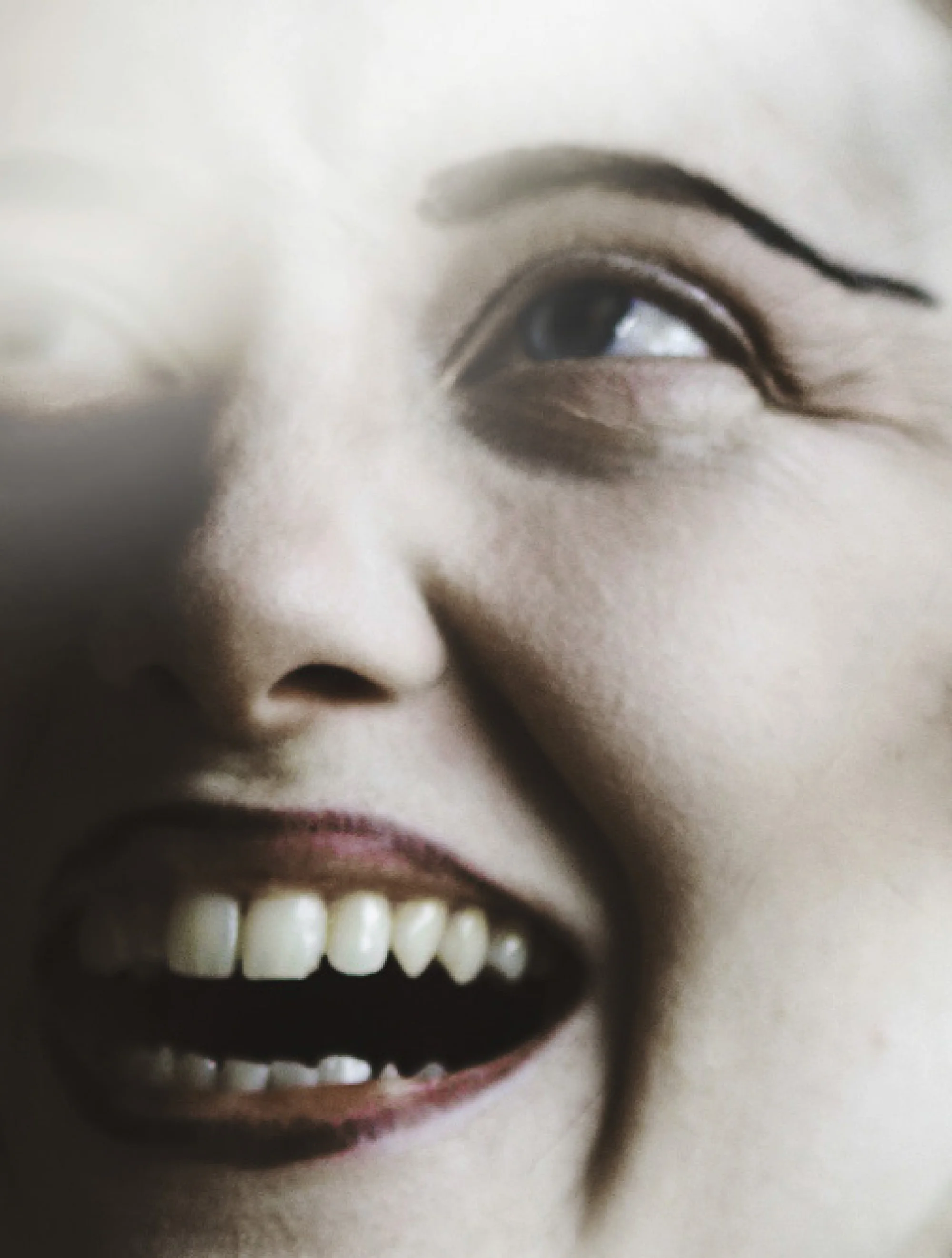

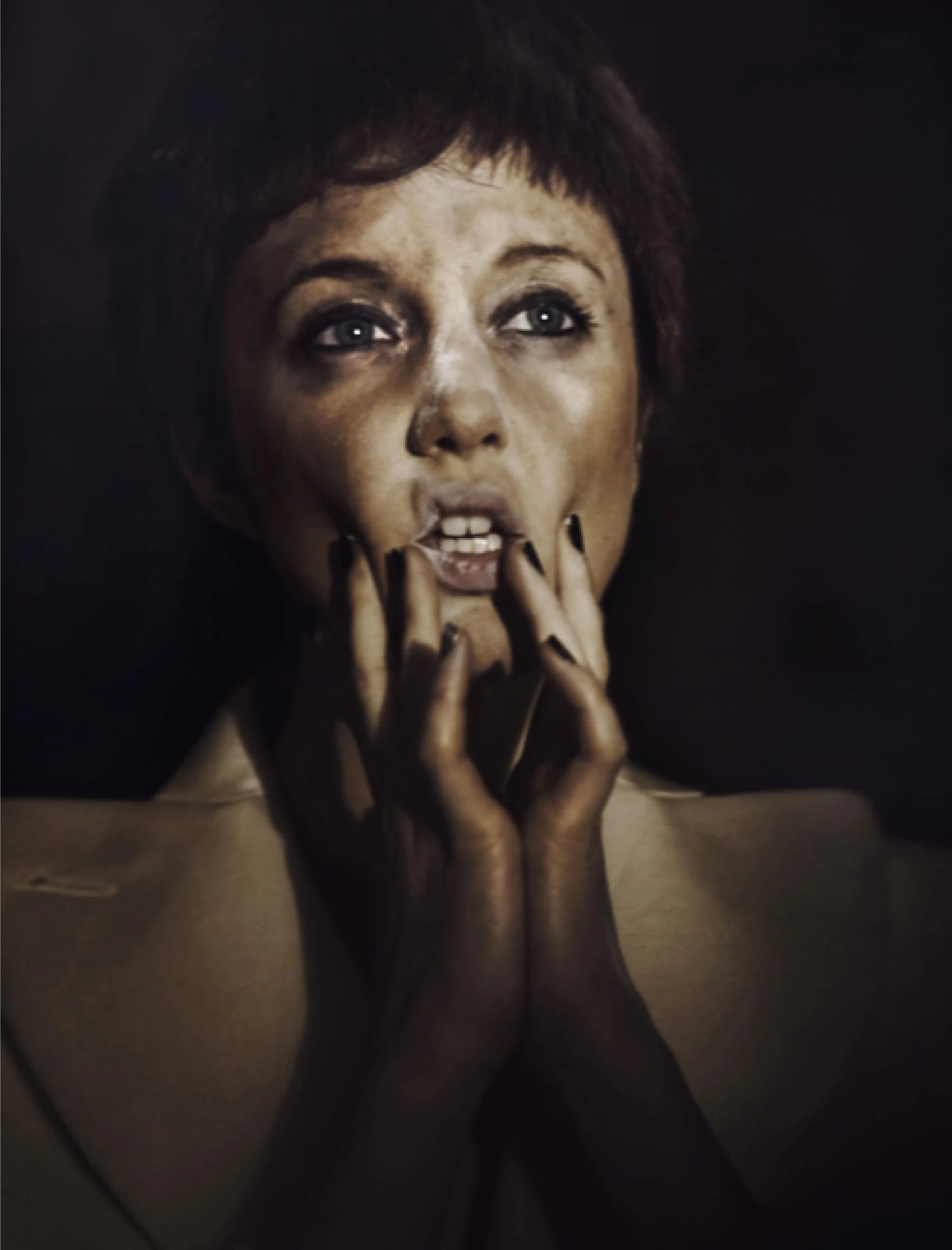
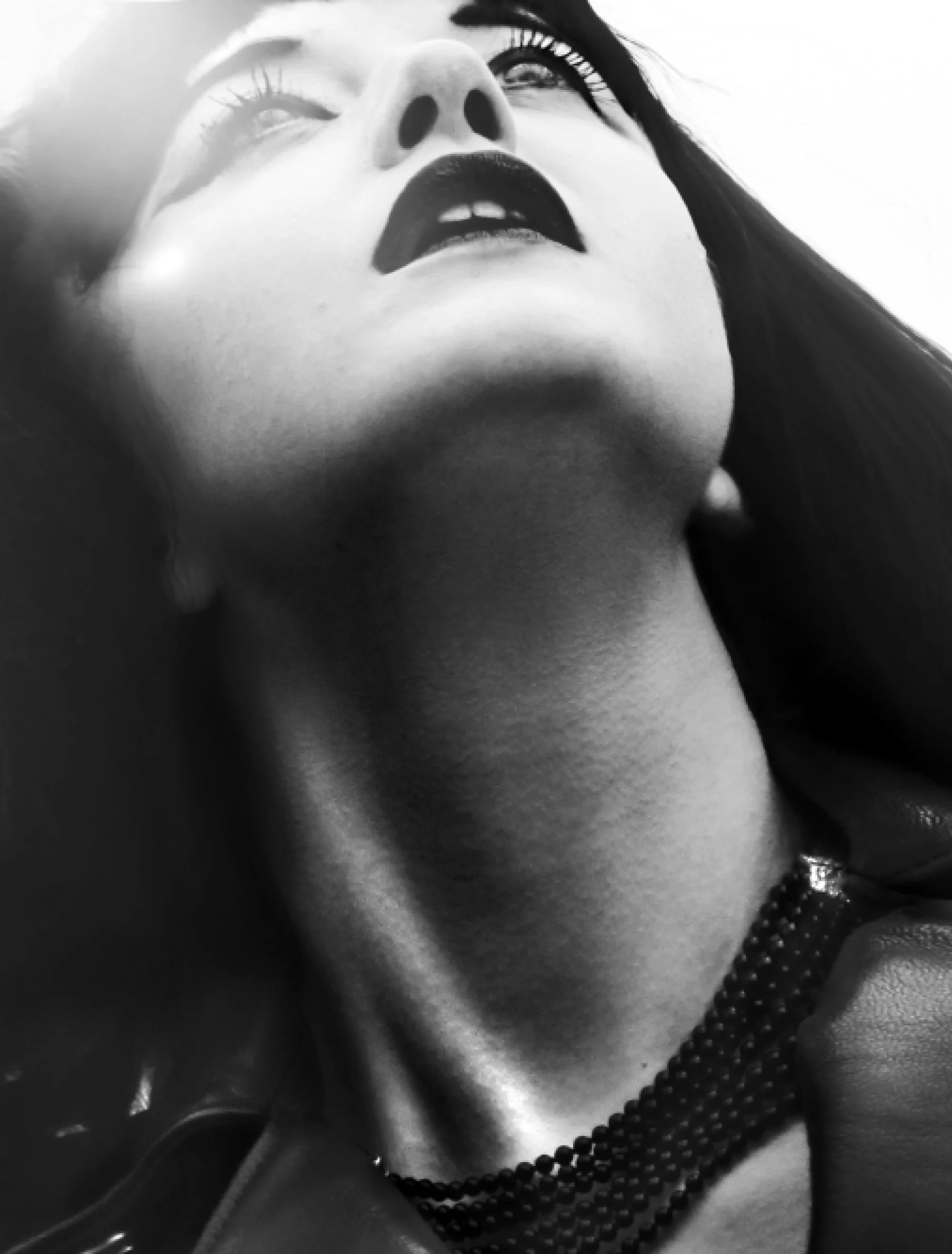
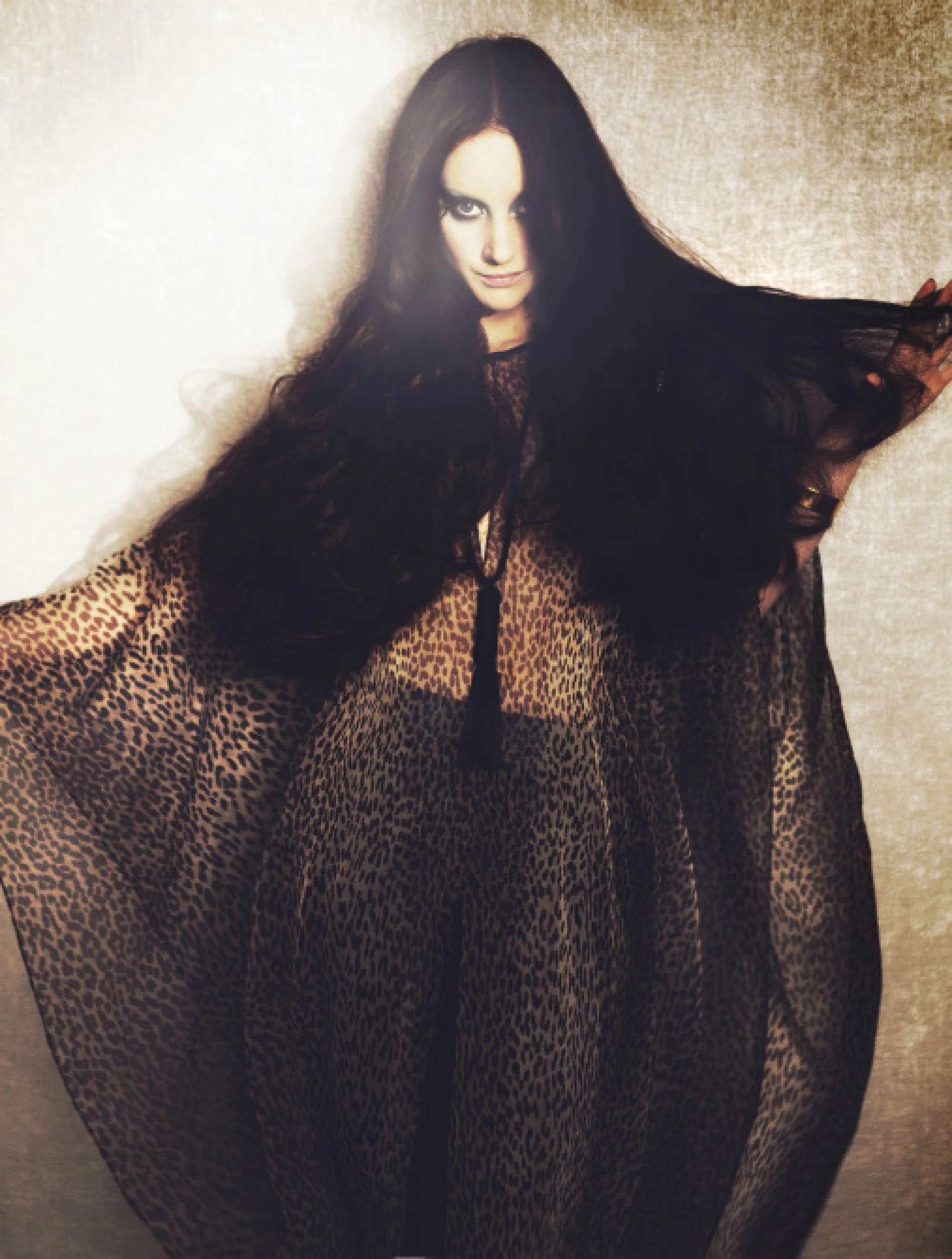
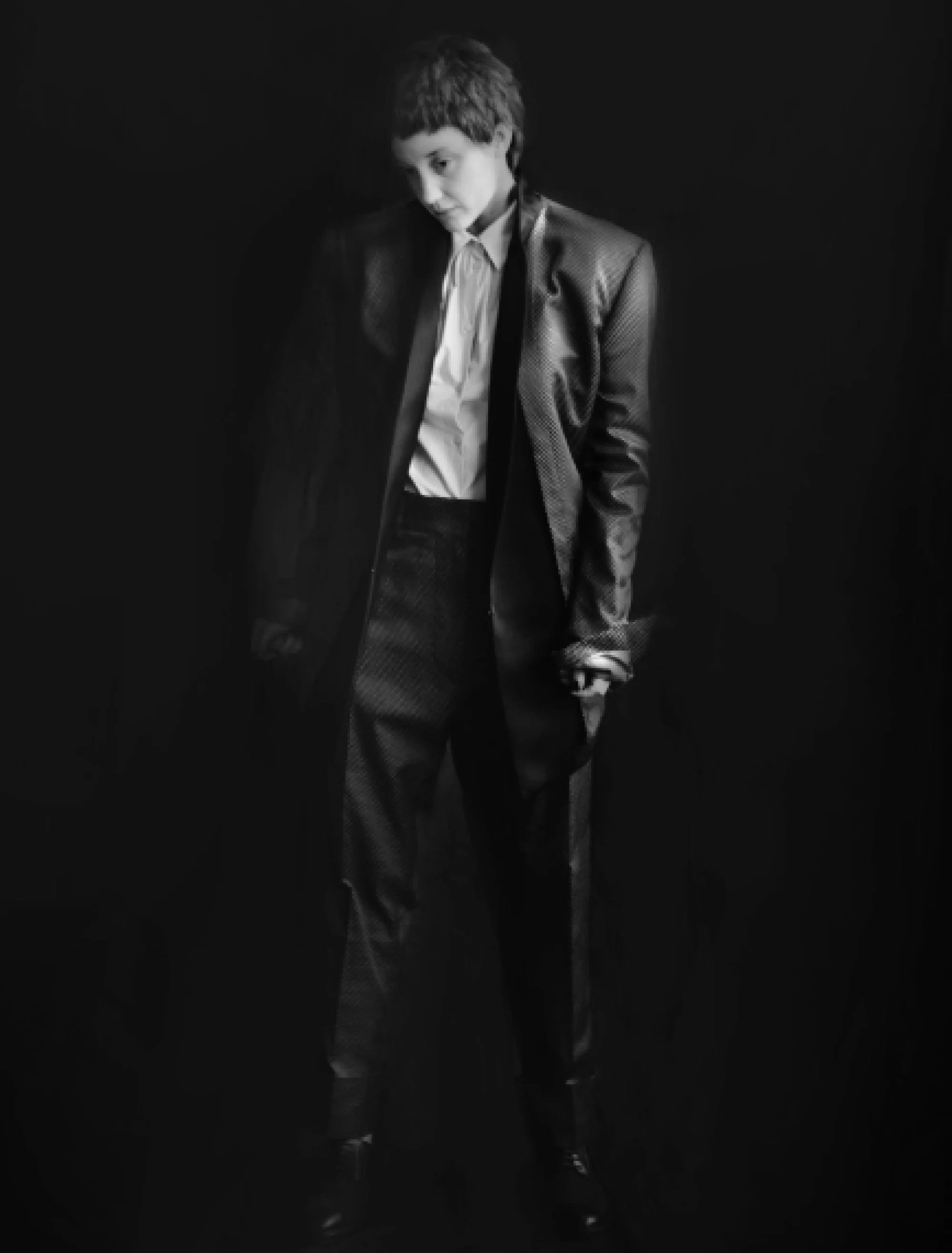
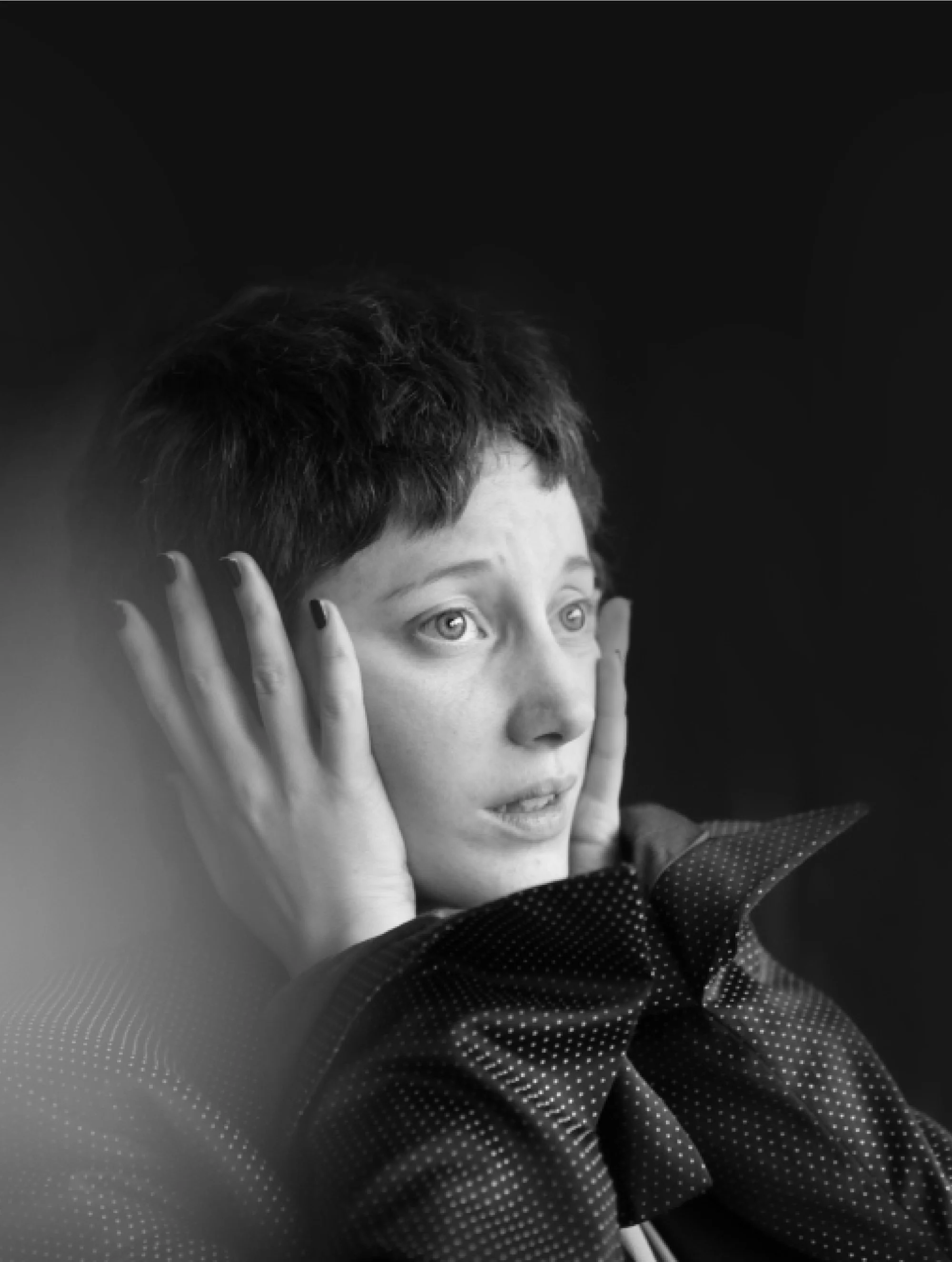
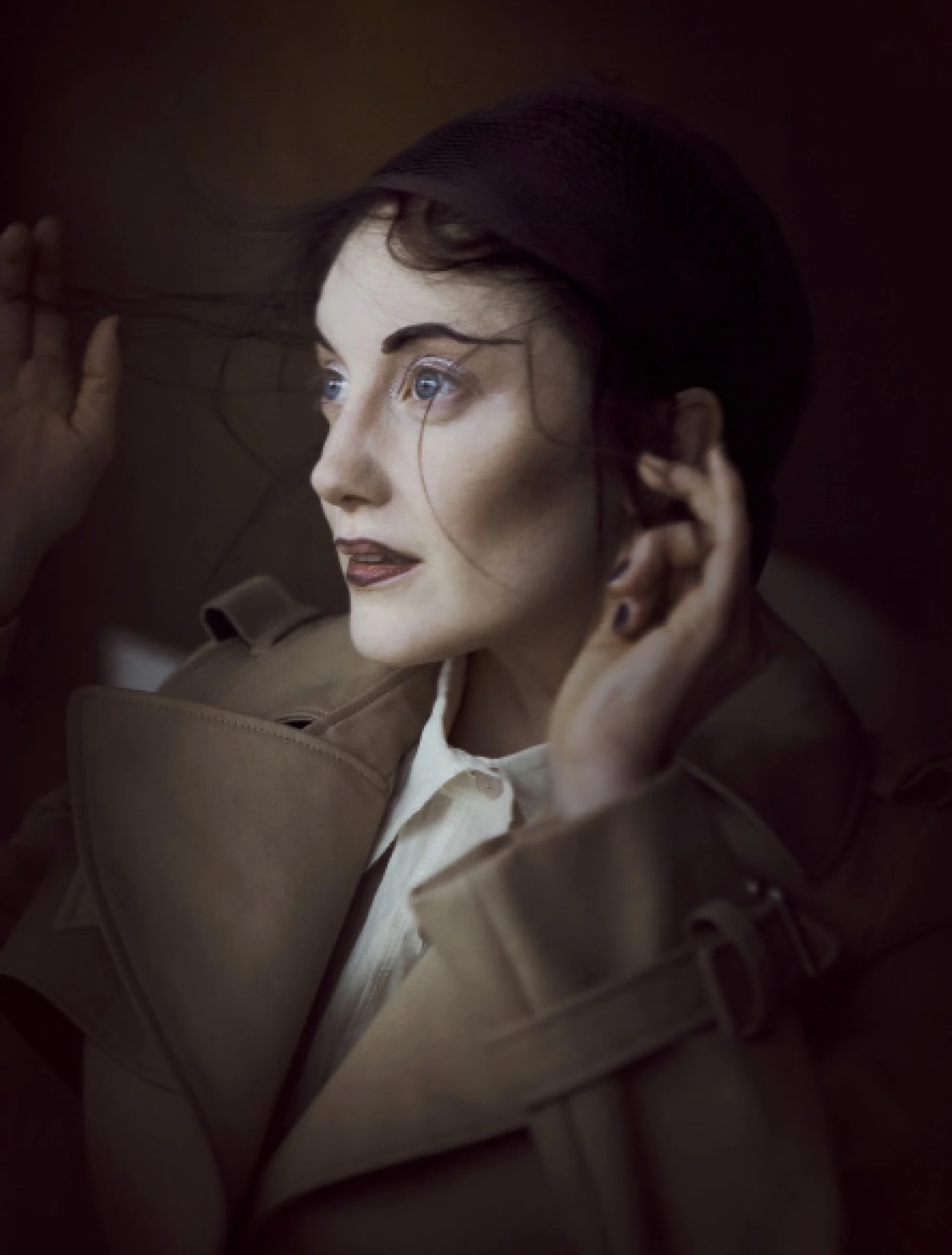
[](#)[](#)
Andrea Riseborough
Psychoanalytic Strides for Self & the Reappraisal of Gender Roles
A walk is a walk is a walk. And then there’s the type of journey carried out when, say, you’re leaving your friend’s house for the liquor store to buy a quart of cheap watery vodka at three in the morning. That’s more like a dash, right? Or, let’s say, the jog from the seat of your Jeep to the grocery store and back to snag an alfalfa sprout and Swiss cheese sandwich on rye? Maybe this is a curt stroll. Regardless, these walks are to the point, fixed; for each of these diminutive trips on foot there is a particular goal, a destination, an agenda, a plan. There is little room, or desire, for spontaneity or meditation.
These are your standard everyday ambles, your unremarkable meanderings and ambulations through life’s tarmacked arteries. Terrain is covered, distance is accumulated, yes, but horizons are very rarely broadened. Stuff is done and a level of normalcy is achieved but very little is learnt or reassessed.
There is, however, another type of walking. Will Self, author and journalist, describes this quite separate form of physical activity as “psychoanalysis of the person that is the place.” Self is an expert at these longer, less defined walks, and has been known to march long distances between airports and city centers (LAX to Hollywood for example), or from city centers to more rural, wilder spaces in search of something else. Self is an intellectual adventurer, and one who relishes the chance to reconnect with both the places he visits and his own whirring conscious and subconscious by taking the path less traveled. Rather than wanting to be parachuted between one world and the next—or the Virgin Upper Class airport lounge and the hotel pool—he actively seeks out and then follows the hidden dots in between.
Andrea Riseborough too enjoys a walk. Not the normalcy of a chore, or the grand distances covered by epic-strider Will Self (well, not physically at least) but an alloy of these two varieties. Today, a day in late November, Riseborough is in Paris. She’s here for work, rather than love. It’s about 4 PM and darkness is beginning to flood over the capital like a threatening reminder of winter almost upon us. Having taken a taxi from Charles de Gaulle airport not half an hour earlier, Riseborough headed directly to her 18th Century hotel, found in the less popular 16th Arrondissement to the west of the city center. Checked in, she immediately took a warm shower.
Although the actress has been to France a fair bit (she was at one point going to move here permanently) she’s never been to this part of the capital before. This feeling of being somewhere new, on the edge of uncharted territory, is a feeling Riseborough seeks. Right now, she’s just bursting to get out. “I think this hotel used to be a bordello…” she explains. “I feel, sitting here, all fresh and with the evening ahead that I’m on a completely clean page. The whole night is out there. I don’t work again until first thing tomorrow morning. I’ll have a bite to eat after we’ve spoken and then I’m going to explore. Hours of walking await.”
Walking, Riseborough, tells me, is vital. Not only for a sense of where she is in the world—be that LA where she lives with her boyfriend Joe Appel, an American graffiti artist, or Vancouver where she just wrapped filming Hidden, a low budget thriller directed by Matt and Ross Duffer—but also for her own sanity. It sounds a little extreme, but something tells me she means it. “I don’t really know any other way, really, to carry on.” The actress laughs. “I don’t know how I could carry on without it. I’m just made that way so I value it very much.” Is it something she does alone? What is she seeking when she walks a new city, or a new area exactly? “I’m not always alone. And I’m happy to walk with lots of different people. Although my job being what it is I do tend to be by myself a great deal. I find it great for processing. Just for allowing blackness and a space to think and work everything out. It seems like, for me, everything else in the world other than walking is the reverse, mainly because of the frantic way we now live.”
She pauses, waiting until she finds the right words rather than rush in, something which she does a great deal, unafraid to take her time and consider what’s coming out of her month. “I like to let things seep in. I like to get a bit of perspective. I like to keep my eyes wide open.”
\*\*\*\*
Riseborough, 31, is a pretty astonishing acting talent, as far as all that is concerned. Whether playing the pugnacious Angelica Fanshaw in British television’s civil war epic The Devil’s Whore, or the sweet and innocent Rose in Rowan Joffe’s remake of Brighton Rock (starring alongside Sam Riley), or as an IRA informer in Shadow Dancer, or (despite all odds) the ambitious yet vulnerable Wallis Simpson in Madonna’s W.E., Riseborough has the ability to disappear into her roles and she does so through a controlled and intense professionalism. Think of the way Paul Wolfowitz looked in his big boxy blue suits when he would present at the IMF.
What is immediately clear about Riseborough in person is that she takes everything (the industry, life, love, art, walking) terribly seriously (ed. note—just like us!); she enjoys thoughtfulness and intense artistic procrastination. I don’t mean that she isn’t any fun—she is, and charming, and eloquent—it’s just that she likes to take a subject, throw it up into the conversational air a la the bone in the beginning of 2001 and pick it apart to study its guts, vanquishing that which might sound clever but is ultimately meaningless.
Riseborough was brought up in Newcastle by her father George, a car salesman, and her mother Isabel, a secretary and beautician; her other relatives were from “all over,” although many had hardhat jobs such as miners or factory workers. Riseborough and her younger sister, Laura, were first educated in the local state school near Whitley Bay, but as their parents came into a little more cash they were moved into a posh private school. The switch made Riseborough aware of class, and subsequently how different classes of people behaved. She began watching and absorbing people, their gestures and their tics.
“Of course, the money didn’t last long but going to the private school broadened my vision.” By the time her vision was sufficiently broadened, the young Riseborough quit school, right before completing her A Levels. “I just stopped going. History is very interesting, yes, but I wanted to start living. I want to live it.” Besides, she adds, “I have the Google!”
If you ask her to trace her interest in film the story muddies somewhat. She’s almost unable to pin down exactly why she finally went into acting. “My dad spent a lot of time watching films because his mum was an usherette in the cinema. And so we’d go a couple times a week. And my dad was a real authority on old Hollywood—always had a great love of film. But we didn’t talk about it a lot, it was just on in the background.” Before she finally took the plunge and went to Rada (the theatre school in London) she took on a series of part time jobs including making greeting cards, working in a Chinese restaurant, and singing in a band. “No, no,” she laughs. “I don’t really know how it all panned out. I think it became clear, to my parents at least, that I felt I needed to remove myself from the system. I’m sure they would have preferred me to stay in school back then. But it’s all come out in the wash! I made those decisions rightly or wrongly; I certainly don’t spend too much time reliving different paths.”
\*\*\*\*
W.E. is by all accounts a dismal pop star vehicle, and Riseborough the only decent thing about it, but if it showed anything, it is her hold on her integrity amid big budgets, bigger egos (if that’s possible) and sprawling A-list-laden summer blockbusters. The most significant of her upcoming releases for 2013 is Oblivion, a movie directed by Joseph Kosinski (TRON: Legacy) and starring perhaps the most beguiling movie star on the planet: Tom Cruise. Think Riseborough is rattled? No chance.
“Tom is a motivator! A team leader!” she enthused. “He’s very focused! I am very focused! There was a lot of focus in the room!” With the movie still in production, it’s almost impossible to verify any major plot details. What can be garnered, however, is that it’s based on a veteran soldier’s journey to a distant planet where he must destroy the remains of an alien race. But it’s not complete schlock. Riseborough says, “I would never have taken on the part if I thought it was going to be one long explosion or whatever. To be honest, it was one of the most fulfilling artistic experiences I’ve had.”
As roles are concerned, Riseborough wants to focus on what she calls ‘whole people.’ And don’t go pigeonholing her for female parts, oh no: “I don’t want to narrow it down to gender. Just people. Not half people, whole people. A lot of female characters are only half written. A woman is all too often just the tool by which the male character draws emotion, so that the audience can love him even more, and they just provide a sexualizing and tantalizing element to the piece. But without the sexual element in lots of films you could just pluck the female character out and everything else would work emotionally. And that is truly telling. That’s not the fault of the actress.”
But simply acknowledging the problem seems to cause her some irritation. “I suppose I just want to stop having the conversation—the one about female roles. That’s not an insult to the question, but I want to get to the point where it’s no longer a valid question to ask. Nobody comes out of something like Gladiator saying what a wonderfully strong male film it is. I just want to stop having the conversation. But who knows when it will ever happen, this quiet sexism. And it’s not only in films. I mean Shakespeare had the same number of female parts. And the Egyptian hieroglyphics. They are all uniform and sinewy and exquisitely delicate with long limbs and fingers and these ginormous eyes. Then you get Manga. And Disney characters … Women don’t have to slip neatly into the small frame of what is expected of them as young actresses. They can have their own creative vision.”
It seems as though our time is nearly up here in Paris. She looks around, as if for something she’s lost.
“There are places that I have, where I can go and create and exist day to day without any interruptions. But it’s nice to be able to stalk around. Peer in. Try and look beyond the physical characteristics of strangers, to discover the uncertainties within. That’s what I value most.” She’s intent on walking now, leaving into the chilly Parisian black to figure out who we all are. Why we like sitting in the dark. Watching people pretend. Why we like getting up and going. Even if we have nowhere to go.
